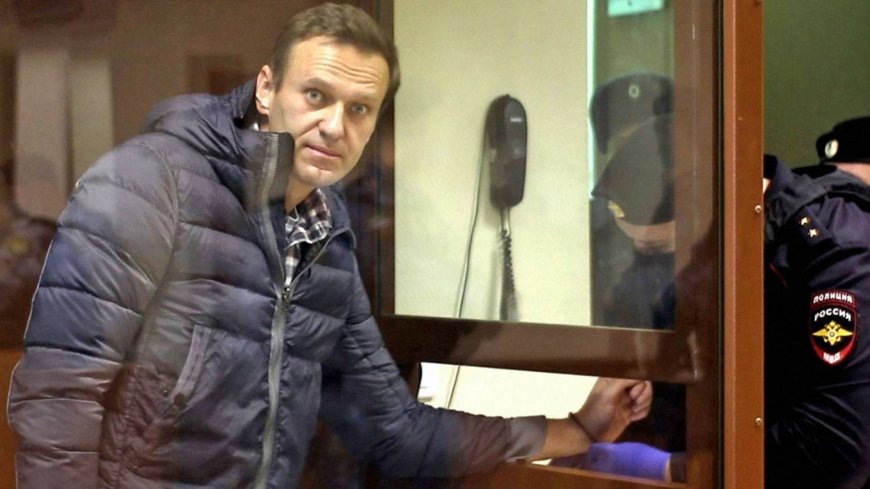The Navalny Affair: Exposing the West’s Political Deception
During the past few days, the Western media has been abuzz with reports of the sudden death of Alexei Navalny, a prominent critic and staunch adversary of the Russian President, Vladimir Putin, within the confines of a penitentiary. The narrative surrounding the outstanding Russian dissident, who commenced his political odyssey in 2009, burgeoning into a preeminent figure in the panorama of Putin critics, has been one fraught with contention and strife. Over the ensuing years, Navalny emerged as an ardent voice decrying Putin's policies, actively participating in numerous protest movements that sought to challenge the status quo. However, his trajectory took a stark turn in 2014 when he found himself embroiled in legal troubles, facing charges of embezzlement pertaining to a pharmaceutical company. Subsequent to judicial scrutiny, Navalny was meted out a protracted sentence of 11.5 years behind bars, effectively curtailing his political activism.

The purported suicide/death of Navalny, as disseminated through the lens of Western media outlets, adds a layer of ambiguity to an already convoluted narrative. Concurrently, amidst the coverage of Navalny's demise, official proclamations detailing the capture of the strategic enclave of Avdiivka in the Donbas region of Ukraine have also surfaced. This development heralds a significant blow to Ukraine, as the loss of this region represents a substantial setback in the ongoing military tumult within the war-torn country. The fortification of military infrastructure in Avdiivka by the Ukrainian forces had been a cornerstone of their defensive strategy, aimed at impeding potential advancement by the Russian troops into western Ukraine. The seizure of Avdiivka by Russian forces not only shields Russian territories from Ukrainian artillery bombardments but also paves the way for a smoother Russian advance further into western Ukraine.
Amidst this intricate web of events, the disproportionate emphasis placed by Western media outlets on Navalny's death hints at underlying dimensions that transcend the immediate context. Noteworthy is the dwindling financial assistance extended to Ukraine by Western countries in recent months, concomitant with the United States Congress deliberating on a prodigious $95 billion aid package earmarked for Ukraine, Israel, and Taiwan. In this crucible, the media's concerted focus on Navalny's passing assumes a calculated maneuver to galvanize public sentiment in the West against Russia, thereby inducing an environment conducive to heightened financial support for Ukraine.
Furthermore, the narrative woven by the Western main media stream is a concerted effort to obfuscate Ukraine's catastrophic military setbacks in its confrontation with Russia. The prevailing dynamics of the conflict between Russia and Ukraine do not bode well for the Western-backed forces, with Ukraine grappling with a shifting military landscape. In a desperate bid to offset these defeats, Ukraine appears to be contemplating a diversionary tactic to engage Russian forces on the domestic front. The recent surge in Western-backed movements orchestrating protests against Putin in the streets of Moscow and St. Petersburg underscores this strategy, albeit thwarted by Russian intelligence apparatus.
In conclusion, the enigmatic circumstances surrounding the reported demise of Russian opposition figure Navalny at the hands of Putin prompt a critical examination of the overarching implications. It raises pertinent questions regarding the potential benefits accruing to Russia from the elimination of a vocal critic, juxtaposed against the plausibility of a meticulously crafted ploy by Western powers intent on galvanizing public sentiment against Putin. The apparent capriciousness of this incident, particularly at a juncture where Russia maintains a position of strength in the conflict with Ukraine, coupled with a discernible thaw in international relations and sanctions, casts doubt on the narrative's veracity. It behoves observers to consider the possibility of external influences, potentially orchestrated by the Western intelligence apparatus, in shaping this narrative. The analogy drawn to the recent incident involving the explosion of the Nord Stream 4 gas pipeline underscores a broader strategy aimed at undermining Russia's soft power and amplifying the efficacy of Western propaganda initiatives. In this clash of narratives, the Eastern Front's vulnerability in the realm of international media warfare has emerged as a pivotal factor, potentially tipping the scales in favor of the Western narrative, despite the ground realities of the conflict.













































